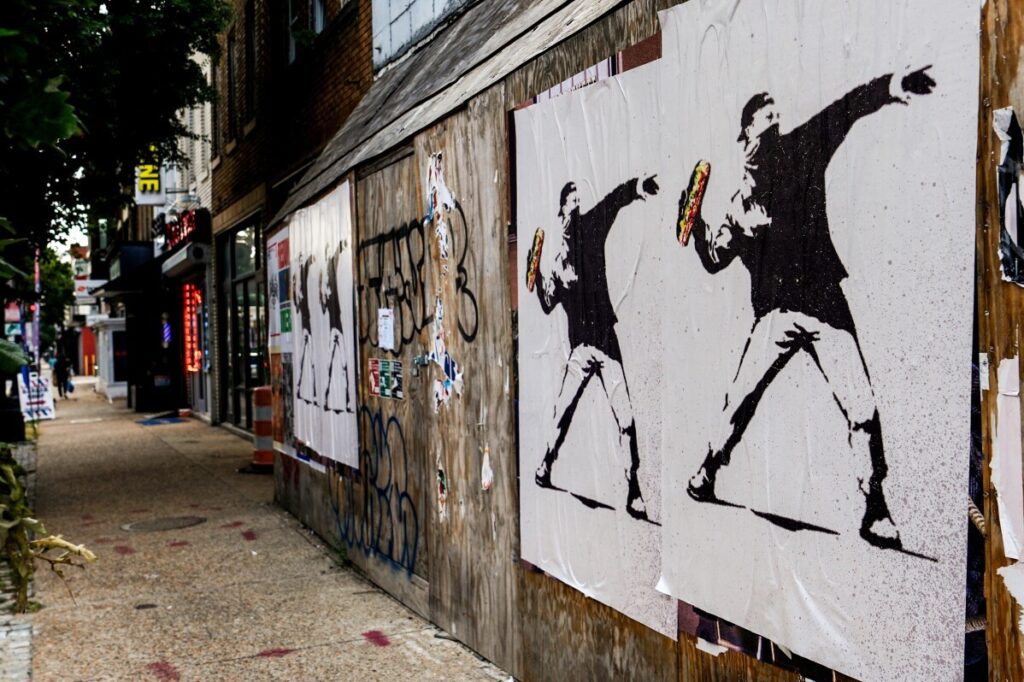When a Sandwich Becomes a Symbol: Federal Overreach or Justified Enforcement?
Sean Charles Dunn’s sandwich throw at a federal agent sparks debate over federal prosecution priorities and political bias in law enforcement.

In the nation’s capital, where political theater often eclipses common sense, a simple act of tossing a sandwich has become the latest test of federal law enforcement’s limits and priorities. Sean Charles Dunn, a Washington, D.C. resident and former Justice Department employee, now finds himself on trial not just for throwing food but for challenging how far the federal government will go to punish political dissent.
Is This Really About Law and Order—or Political Showmanship?
Dunn admitted to hurling his submarine sandwich at U.S. Customs and Border Protection agents standing outside a nightclub on August 10. His defense argues this was an “exclamation point”—a peaceful if provocative protest against President Trump’s aggressive federal law-enforcement surge in D.C. But prosecutors insist that no one is above the law, no matter their motives.
Assistant U.S. Attorney John Parron told jurors plainly: “No matter who you are, you can’t just go around throwing stuff at people because you’re mad.” Yet one must ask: Has the Department of Justice turned common-sense enforcement into selective prosecution? This question gains weight considering Dunn was fired publicly by Attorney General Pam Bondi in what his lawyers call a politically charged move branding him as “an example of the Deep State.” Further fueling this narrative was the militarized raid on Dunn’s home with armed agents in riot gear—widely publicized by the White House itself.
The viral cellphone video transforming Dunn into an unlikely symbol of resistance also exposes troubling contradictions. On one hand, he shouted profanities and insults—”fascists,” “racists,” “shame”—at federal agents who tried to remain composed and de-escalate tensions. On the other hand, when those same agents jokingly gave gifts mocking the incident—a plush submarine sandwich and a “felony footlong” patch—it raises questions about whether such prosecutions serve justice or spectacle.
Protecting National Sovereignty Means Fairness—and Clear Limits
The America First movement champions robust law enforcement that protects national sovereignty and public safety without descending into political witch hunts or biased prosecutions. While it is essential to uphold respect for federal officers on duty, we must also guard against weaponizing minor infractions to intimidate dissenters based on their political beliefs.
Dunn faces charges ranging from assaulting to impeding federal officers amidst an environment where supporters of other high-profile political events—including those involved in January 6 incidents—have seen dramatically different treatment once pardons entered the equation.
This case forces us to confront uncomfortable questions: When does enforcing laws cross into suppressing free speech? How long will Washington allow politically selective prosecutions under the guise of maintaining order? For families watching inflation bite harder each day and communities demanding real security, these legal showdowns reveal much about our nation’s priorities.
The jury’s verdict will resonate beyond one sandwich thrower; it stands as a litmus test for preserving individual liberties while maintaining lawfulness within our borders—core pillars of America First principles.
What do you think—is this prosecution justified protection of law enforcement or political persecution under another name? Join the conversation below and share this story if you believe preserving freedom means holding Washington accountable.
